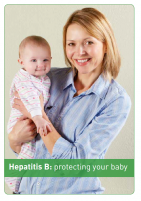
- If having sex, ALWAYS use a condom
- Do not donate blood, semen or register as an organ donor
- Do not use anyone elses toothbrush, razor, scissors or other personal grooming equipment or let them use yours
- Clean surface blood spills with a solution of 1 part bleach to 10 parts water or hot soapy water. Bag and seal blood-stained articles before placing them in the main bin
- Adhere to local infection control standard precautions in the healthcare setting
- Always clean and cover cuts,scratches and open wounds with a waterproof plaster
- Sexual partners, children and other household members of an acute/chronically hepatitis B infected individual should be vaccinated against hepatitis B. This is given by injection as 3 separate doses
Please Note:
There is no risk of infection from normal social contact. You cannot catch hepatitis B or Hepatitis C from a toilet seat, by touching or hugging an infected person. Crockery and cutlery used by someone with Hepatitis B or C can be washed in hot soapy water or dishwasher in the normal way.
Protecting your Baby
Can I continue to work?
Yes. However to do medical or nursing work you will need to get advice.
Where can I go for help?
If you think you could have contacted the Hepatitis B virus at any time in the past you should talk to your GP regarding a simple blood test to see if you have been infected.
If you have been diagnosed with Hepatitis B ask your GP to refer you to the Regional Liver Unit at Royal Victoria Hospital in Belfast or to a local Consultant Gastroenterologist who specialises in Hepatitis B for specialist assessment and further information.
What can I do to help myself?
- If you inject steroids or drugs NEVER share any equipment
- ALWAYS use a condom for sexual intercourse or during sexual contact
- Keep in regular contact with your GP and attend regular health checks
- Don’t drink any alcohol. Drinking alcohol can speed up the progression of liver disease in people with Hepatitis B
- Eat a healthy diet, with regular meals, plenty of fruit and vegetables and avoid fatty and sugary foods
- Take regular exercise as this can help with the tiredness that is associated with chronic Hepatitis B. Ensure that you get adequate rest
- Try to keep your weight at a healthy level. Being overweight can sometimes cause more damage to the liver

